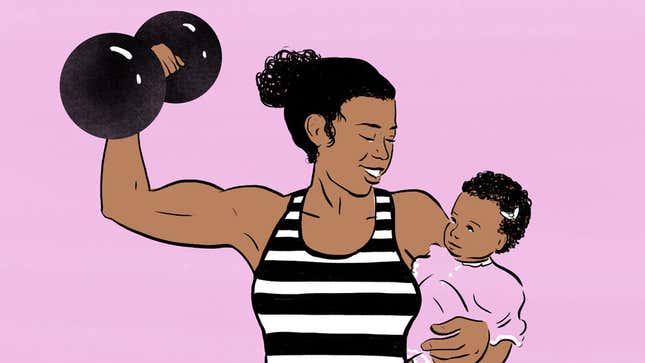Single Mom By Choice: A Great Option for 'Strong-Ass Bitches'
Latest

If you’re nearing an age where you want a child, but whatever stars you imagined aligning in your favor to do so have not, there is a very good piece exploring the reality of going it alone by choice—AKA, “choice moms”—and how great it can be if you cook it just right.
It’s important to note how far we’ve come, though: Once all women were expected to want kids whether they could have them or not. Now not only is not having kids a mainstream position we have (mostly) stopped asking women to apologize for or justify, but so is making the choice to have a kid on your own terms, bypassing all the usual channels like a dude or even a gay best friend (though the latter still seems to be a plus).
Over at Cosmopolitan, Kate Bolick writes about her experience weighing the pros and cons of single motherhood by choice. Like lots of women, she just assumed marriage and children were in the cards for her, but found that she wasn’t particularly compelled in either direction, until one day, she was. She writes:
Finally experiencing that famous tick-tock was unsettling, I admitted, but also a relief. Now I got what other women had been talking about. Even so, I wasn’t ready to dismiss my decades-long ambivalence. Maybe it wasn’t denial, as people say, but a genuine disinclination to be a mother, my own internal voice trying to be heard above the ear-splitting din of cultural expectation.
Who can say? But what makes Bolick’s piece a good read is that she investigates her own whims, considers the facts, interviews 20 women who chose this route, and highlights the key similarities among them. To be clear, our cultural perception of the single mom still vacillates between stoic, selfless superwoman who lives for her children at her own expense, and the sad, exhausted, depressed lady who can’t get it together, whose kids will suffer. While both are true and real depictions, so is everything in between.
Dayna Evans’ recent piece over at Gawker, “In Praise of Single Mothers,” beautifully illuminates these extremes. Noting that 77 percent of single parents are women, she writes of the outsize expectations we place on all mothers, but especially solo moms:
In our culture, we want mothers to be everything: good wives, strong role models, educators, friends, and empathetic listeners. We want mothers to shed their former selves in order to carry on the role of inspiring their children to be something. We want mothers to be intelligent but compassionate; generous but self-aware; at work but at home, all at once. That responsibility is difficult enough to bear when there is another warm body willing to step into a parental role beside them.
But when there is an absence—when it is just the single mother being asked to fill in for an entire child’s life, to rise to the occasion, to do the birthday parties and the rides to school and the homework help—the strain is enormous.
And yet, those enormous strains can be incredibly rewarding for women who wrote the absence into the equation from the start. As you might expect, loving the choice mom life might be as simple as choosing it freely and having the resources to pull it off.
Back at Cosmo, Bolick writes that it’s hard to know how many women are choice moms because no national surveys make the distinction between voluntary and involuntary, but, she reports:
California Cryobank, one of the nation’s largest sperm banks, told me they’ve seen a significant growth in choice-mom clients since the early 2000s, particularly in the past five to eight years. Carole LieberWilkins, a licensed marriage and family therapist in Los Angeles, told me she’s counseled far more choice moms over the last decade than the previous two decades of her practice. Also revealing are surveys that track the age at which women first get pregnant. In 2014, the CDC reported that from 2007 to 2012, birth rates for single mothers over 40 surged by 29 percent.
And she notes that the 20 women she spoke with mostly fit the bill: they are largely older, better educated, more affluent, and white, but that several were “out-of-work actresses, a baker, and a singer-songwriter,” which may signal a shift in the demographic.
Though becoming a choice mom wasn’t necessarily their first choice—most if not all had at some point harbored the traditional idea of how babies enter the world—many hit an age where they realized it was now or never, them or nobody, so they went for it (two women she spoke with had been knocked up accidentally).
-

-

-

-

-

-

-

-

-

-

-

-

-

-

-

-

-

-

-

-

-

-

-

-

-

-

-

-

-

-

-

-

-

-

-

-

-

-

-

-








































